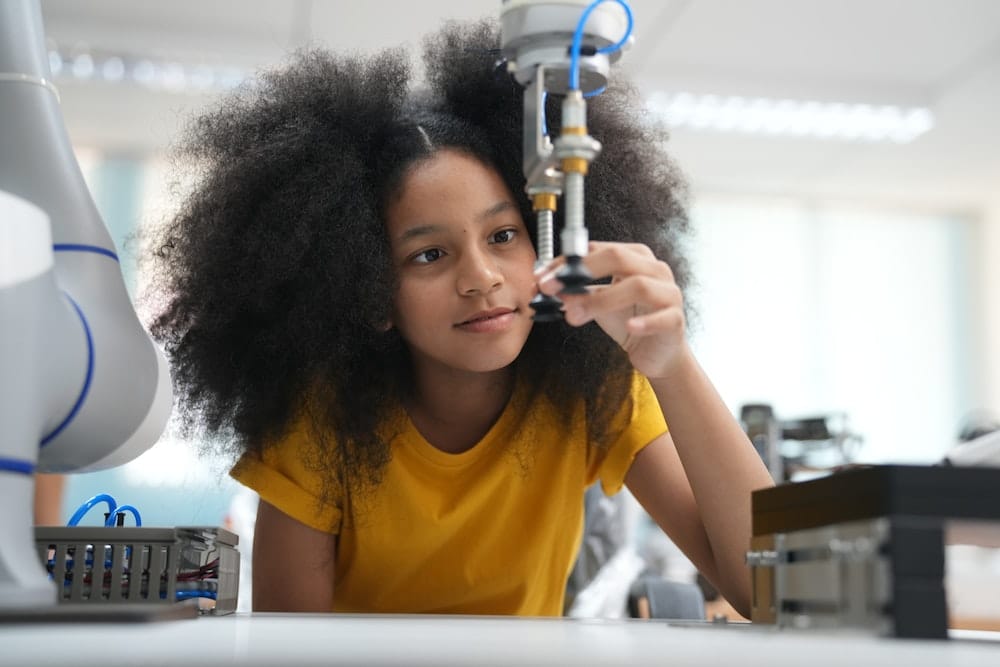What Are the Innovative Approaches to Language Learning with VR?

As we continue to advance technologically, it is crucial to acknowledge and explore the new and innovative ways technology is infiltrating our education systems. Especially when it comes to language learning, methods and practices are rapidly evolving. Among the emerging technologies, virtual reality (VR) stands as a game-changer, creating exciting possibilities for learners around the globe. It offers an immersive, interactive and experiential learning platform that provides real, tangible benefits to the language learners. As you navigate through this article, you will discover how VR is reshaping language learning and education.
VR – A Groundbreaking Change in Language Learning
Virtual reality, the three-dimensional, computer-generated environment where individuals can immerse themselves and interact with their surroundings, is becoming a significant player in the field of education. This technology allows learners to immerse themselves in the language they are trying to learn, providing them with an environment that closely mirrors real-life scenarios.
In parallel : What Are the Best Practices for Data Privacy in UK Online Retail?
VR technology provides a safe space for students to practice and make mistakes without the fear of real-world consequences. This approach, compared to traditional classroom settings, can boost learners’ confidence and accelerate their language learning process. Moreover, VR provides immediate feedback, a crucial aspect of the learning process, allowing students to learn from their errors and perfect their language skills.
The Blend of Immersive Experiences and Language Learning
The immersive nature of VR offers unprecedented opportunities for language learning. It creates a virtual world where learners can practice using the language in real-life situations. They can interact with virtual characters, engage in dialogues, and even practice social etiquette peculiar to the target language’s culture.
This might interest you : Maximize your alpine escape with meribel rental agencies
Research studies have shown that immersive learning experiences significantly enhance memory retention and improve learners’ understanding. VR provides learners with practical, hands-on experiences that are not only engaging and fun but also highly effective in solidifying their language skills. The social aspect of VR, where learners can interact with other users in the virtual space, also allows them to practice their language skills in a stress-free, interactive environment.
VR – An Innovative Approach to Learning Languages
Virtual reality provides a revolutionary way of learning languages, far removed from the traditional textbook and classroom methods. VR language learning applications are now available that offer diverse scenarios and settings for learners to practice in. These can range from general day-to-day conversation scenarios to specific professional situations like business meetings or medical consultations.
These VR applications often incorporate gamified elements to make the learning process engaging and enjoyable. They also provide real-time feedback, allowing learners to correct and improve their language skills on the spot. Moreover, many of these applications offer multi-user capabilities, enabling students to connect with other learners worldwide, making language learning a social experience.
Bridging the Gap Between Theory and Practice with VR
One of the key benefits of using VR in language learning is its ability to bridge the gap between theory and practice. Traditional language learning methods often focus on theory, leaving students unsure about how to apply their knowledge in real-world situations. With VR, learners can be immersed in a wide range of scenarios where they can practice language skills in context.
Students can simulate conversations with native speakers, tackle pronunciation challenges, and learn cultural nuances. This practical approach allows students to apply their theoretical knowledge, gain confidence, and become more proficient in their target language.
Future Perspectives on VR and Language Learning
With the advancements in VR technology, the future of language learning seems bright and promising. More sophisticated VR platforms are on the horizon, offering even more immersive and interactive learning experiences. Additionally, as more studies underline the effectiveness of VR in education, more institutions are likely to adopt this technology.
In the near future, as VR becomes more accessible and affordable, we can expect it to become a standard tool for language learning. It promises a learning experience that is not only engaging and immersive but also effective in helping learners acquire language skills quickly and efficiently. However, as with any technology, the key to maximizing its potential lies in its thoughtful and appropriate implementation in the learning process.
Transforming Language Education with VR
Virtual reality has begun to profoundly shape the way we approach language education. It fundamentally changes how students interact with the subject matter, creating an entirely immersive learning experience that is far more engaging and beneficial to students than traditional methods.
A crucial advantage of using VR in language learning is the opportunity for real-time interaction. Students can converse with virtual characters, replicating conversations with native speakers. This interaction aids in improving language fluency and accent, which can be challenging to achieve in a regular classroom environment. Furthermore, the ability to simulate real life situations provides an excellent platform for learners to practice and refine their language skills in various contexts.
The use of VR in language teaching also enables educators to create exhaustive, tailored lesson plans. They can curate a variety of scenarios for students to explore and learn from, thus ensuring a comprehensive learning process. For instance, they can simulate a business meeting in French or a marketplace bargaining in Mandarin, providing learners with a broader understanding of the target language’s practical usage.
Moreover, virtual reality language learning allows customization per the learner’s pace and level of understanding. This feature is a significant leap from traditional language learning methods, which often follow a ‘one size fits all’ approach.
Conclusion – Revolutionizing Language Acquisition with VR
The advent of virtual reality in language education has unquestionably revolutionized the way learners acquire new languages. This technology has successfully transformed the learning landscape from a passive, one-dimensional experience to an interactive, immersive one.
While the traditional methods of language teaching focus primarily on theoretical knowledge, VR empowers students to gain practical experience. This blend of theory and practice makes learning a foreign language more engaging, effective, and enjoyable. The added advantage of real-time feedback and the opportunity to interact with virtual native speakers significantly enhances the overall language learning experience.
In essence, virtual reality stands as an influential game-changer in the field of language learning. Its application in this domain holds immense potential and promises future advancements that can further streamline language acquisition. As VR technology becomes increasingly accessible and affordable, we can anticipate a future where it becomes an integral part of global language education.
To maximize the potential benefits of VR in language learning, it is crucial for educators and institutions to thoughtfully incorporate this technology into their curriculum. It is equally important for learners to embrace this innovative learning method and make the most out of the unique opportunities it offers.
In the face of rapid technological advancement, staying open to such innovative approaches to language learning is the way forward. After all, the ultimate goal is to make language learning an enriching, rewarding, and enjoyable journey for all.
